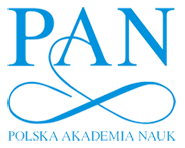Statement of the Committee of Human Genetics and Molecular Pathology of the Polish Academy of Sciences on genetic testing and genomic research commissioned abroad of July 26, 2021
The Committee draws attention to worrying reports of abuse of genomic data by Far East biotech companies that perform commercial genetic testing directly for the recipient (DTC) and genomic research (sequencing, NGS). These companies can afford to offer low-cost services thanks to government subsidies they receive. Biological material and genetic data are obtained in dozens of countries around the world, including Poland.
The lack of compliance by these companies with the principles of genetic testing ethics raises serious doubts. It is known that these entities store and re-analyze biological material and genetic data to the extent that goes far beyond the objectives of the originally commissioned procedure, without the knowledge and consent of the principals. In many cases, genetic and personal data are stored directly on government servers.
Collecting a very large and diverse database of human genomes, often together with phenotypic data, makes it possible to dominate the market of pharmaceuticals, laboratory medical diagnostics and even biological weapons. This resulted in the official recognition of such activities by US counterintelligence as a threat to national and economic security. This threat affects, albeit to a different extent, many countries around the world, including Poland. According to a rough estimate, there may currently be about 100,000 complete Polish genomes in Far Eastern laboratories. There is no control over the sensitive personal data contained therein.
The Committee recommends Polish scientific institutions that perform sequencing of genetic material abroad to give up the services of Far East biotechnology companies, and in any case to exercise extreme caution in this regard. This also applies to other forms of cooperation with Far Eastern partners in the field of genetics and biotechnology. The Polish NGS market is fully technically secured and is able to meet domestic needs in this area. Also, people who individually send biological material for research by companies from the Far East must be aware of the threats to the privacy and confidentiality of their genetic data and the lack of control over the actual use of the biological material sent.
At the same time, the Committee reiterates the need to introduce appropriate legal regulations that will ensure the safe operation of the genetic diagnostics market.
List of Committee members accepting the statement
For the Committee on Human Genetics
and Molecular Pathology of the Polish Academy of Sciences
Chairman
/ - / prof. dr hab. med. Michał Witt



